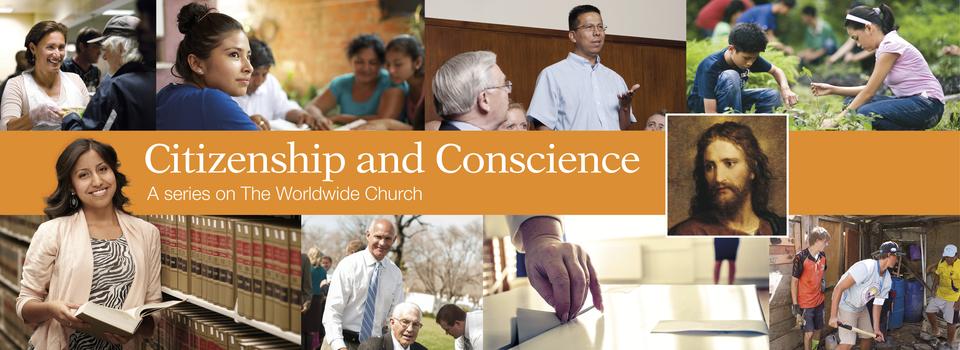
To be a good Mormon is also to be a good citizen
Can Latter-day Saints fulfill their roles as citizens in the societies where they live and also be true to their faith? Some may question the very premise — why must there be tension between church and country? Religion and government can’t ignore each other, nor need they be enemies. The spheres of spirituality and law differ, but they cooperate best when freedom of conscience and the common good make space one for another.
Caesar must be rendered his due, but so must the voice of the soul.[1]
Latter-day Saints understand this dynamic. The twelfth article of faith states: “We believe in being subject to kings, presidents, rulers, and magistrates, in obeying, honoring, and sustaining the law.” Mormons also believe that “no government can exist in peace, except such laws are framed and held inviolate as will secure to each individual the free exercise of conscience.”[2] Obedience to law and the free exercise of conscience — two powerful prerogatives — have little option but to get along.
Read the full commentary at the global edition of Mormon Newsroom.